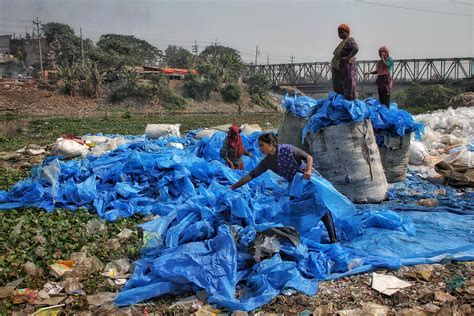In the realm of global environmental negotiations, Saudi Arabia emerged as a dominant force during a crucial United Nations meeting in Busan. The stakes were high as countries clashed over the pressing issue of plastic pollution. This clash pitted Saudi Arabia and its allies against high-ambition nations, primarily from Europe, who sought stringent measures to curb plastic production.
Environmental Diplomacy
One key player described Saudi Arabia’s approach as an aggressive investment in environmental diplomacy. The Kingdom’s vested interest in protecting its oil-dependent economy fueled its staunch defense of the booming plastics industry. As the world transitions towards cleaner energy sources, the demand for oil faces a potential decline while plastic production remains lucrative.
The Pro-Plastic Army
Behind closed doors, seasoned negotiators noted the formidable tactics employed by Saudi Arabia and its allies. Their skilled negotiation team strategically influenced other oil-producing nations to align with their agenda. Russia and Iran stood shoulder-to-shoulder with Saudi Arabia, collectively obstructing efforts for a comprehensive plastic treaty.
Divide and Conquer Strategy
Accusations surfaced that Saudi Arabia attempted to sow discord among high-ambition countries by diverting attention towards financing issues rather than addressing plastic pollution directly. Despite calls for financial responsibility from all involved parties, divisions persisted on how to fund initiatives aimed at reducing plastic production.
The Road Ahead
As diplomatic tensions simmered in Busan, it became evident that building robust alliances between negotiations is paramount. The path forward necessitates proactive engagement between like-minded nations to counter opposition from reluctant parties led by Saudi Arabia. There are rumblings within diplomatic circles about potentially bypassing uncooperative factions and forging ahead with a proactive treaty agenda.
Expert analysis underscores the need for countries to reevaluate traditional consensus-based approaches in multilateral environmental agreements. A shift towards majority voting mechanisms could neutralize obstructionist tactics deployed by influential players like Saudi Arabia.
Predictions and Preparations
Anticipation looms regarding future negotiations amid concerns that disruptive forces may gain momentum under evolving political landscapes globally. Delegations are strategizing on engaging major players such as Brazil, Indonesia, India, and China to bolster support for decisive action on curbing plastic production.
In this intricate dance of power dynamics and environmental stewardship, the challenge lies in navigating divergent interests towards a collective goal of combating plastic pollution effectively. As nations gear up for upcoming talks amidst shifting geopolitical tides, one thing remains clear — the battle against plastic waste is far from over.

